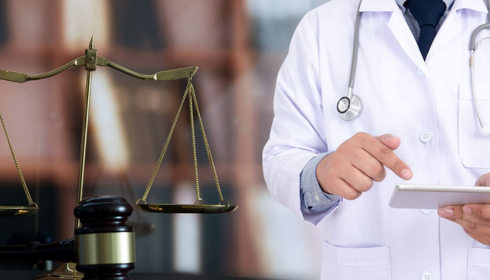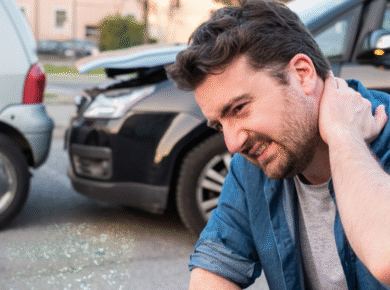Why Medical Expert Witnesses Matter More Than You Think

Courtrooms can be intimidating places. You’ve got legal arguments flying, stacks of documents on the table, and people hanging onto every word. But in cases where health, treatment, or science plays a role, one voice can cut through the noise: the medical expert witness. They’re not just there to throw around jargon or impress the judge—they’re there to explain, in plain English, what the facts actually mean.
The Human Side of Testimony
Think about it. A lawyer might know the law inside and out, but ask them to explain whether a spinal injury could have resulted from a specific car accident, and they’ll likely call in reinforcements. That’s where a medical expert steps in. They take complex anatomy, test results, or treatment histories and make them digestible for a jury that may have zero medical background.
Sometimes, these experts can make or break a case. It isn’t about who yells louder—it’s about who explains better. That’s why attorneys often need to hire medical expert witness support, especially when a case hinges on specialized knowledge that the average person simply doesn’t have.
More Than Just Doctors in White Coats
It’s easy to assume all medical experts are surgeons or high-profile specialists. In reality, they come from all corners of healthcare. You might have a pharmacist explaining drug interactions, a psychologist shedding light on emotional trauma, or even a nurse testifying about hospital procedures.
This variety matters. No two cases are the same, so neither are the experts needed. A malpractice claim, for example, might call for a physician with years of clinical practice, while a product liability lawsuit could need someone who understands toxicology or occupational health. The point is, the right expert brings credibility—and credibility builds trust.
Why Location Can Matter
Here’s something people don’t always think about: geography. When you’re scrambling in the middle of a case, searching “find medical expert witness near me” might feel like a lifesaver. Local experts can sometimes be easier to schedule, more affordable, and even more relatable to a jury. A hometown doctor who understands the local healthcare system might connect with jurors in ways an out-of-state professional cannot.
That said, in high-stakes cases, lawyers don’t hesitate to look beyond city limits. Sometimes the perfect match isn’t next door but across the country. Technology has helped here—video depositions, virtual consultations, and secure digital document sharing make working with distant experts far more practical than it used to be.
The Legal and Ethical Balance
Medical experts aren’t there to “take sides” the way lawyers do. Their responsibility is to the truth, not the paycheck. A good expert witness will call it as they see it—even if that perspective doesn’t align perfectly with the hiring attorney’s narrative. That honesty is what gives them weight in the courtroom. Judges and jurors can usually tell when someone’s being biased.
And let’s be real: if an expert bends the truth or exaggerates, it can backfire spectacularly. Cross-examination is designed to poke holes in shaky testimony, and nothing damages credibility faster than being caught stretching facts.
The Search for the Right Fit
Finding the right expert is not as simple as scrolling through a directory. Lawyers often vet professionals thoroughly—looking at their credentials, published research, teaching experience, and yes, even how well they communicate. It’s not enough for someone to be brilliant; they also have to translate that brilliance into words regular folks understand.
Imagine a neurosurgeon with groundbreaking work in brain injury research, but who explains things in a way that confuses everyone in the courtroom. That kind of expert won’t help. On the other hand, a less famous but highly articulate physician might have jurors nodding along, truly grasping the science.
For attorneys, the goal is to match the expert’s knowledge to the specifics of the case while ensuring they’ll be a compelling presence under oath. It’s almost like casting the right actor for a role.
Cases Where They’re Indispensable
Medical experts aren’t pulled into every lawsuit. But when the stakes are high—personal injury, malpractice, insurance disputes, criminal defense—their insights become critical. They provide more than testimony; they provide clarity.
Take, for instance, a wrongful death claim involving disputed cause of death. A forensic pathologist might be the one to walk the jury step by step through an autopsy report, highlighting details that explain what really happened. In another example, a medical billing expert might unravel complex healthcare invoices to show whether charges were reasonable or inflated.
Every time, the presence of a medical expert for legal case makes the difference between speculation and informed judgment.
The Ripple Effect on Outcomes
We like to think of the justice system as fair and impartial, but the reality is that human understanding plays a massive role. If a jury doesn’t understand a crucial medical fact, they may lean toward the side that simply tells the more convincing story. Medical experts balance that out by grounding the narrative in facts that can’t be ignored.
Their testimony often influences settlement negotiations too. When the other side sees that a case has a strong, credible expert lined up, they may be more inclined to resolve things outside of court rather than risk a trial they could lose.
Bringing Humanity into Law
At the end of the day, what makes medical experts so valuable isn’t just their knowledge—it’s their ability to bring humanity into cold legal proceedings. They remind everyone that behind the paperwork, motions, and cross-examinations are real people dealing with real health consequences.
That’s something both judges and juries tend to respect.
Wrapping It Up
So, the next time you hear about a lawsuit involving medical issues, remember: it’s not just about the lawyers or the evidence. It’s about the interpreters of that evidence—the men and women who step into the courtroom to bridge the gap between science and law.
Medical expert witnesses don’t just testify; they educate. They guide. They ground arguments in reality. And while their role may seem like a technicality to outsiders, in truth, they can be the difference between winning and losing, between confusion and clarity.

